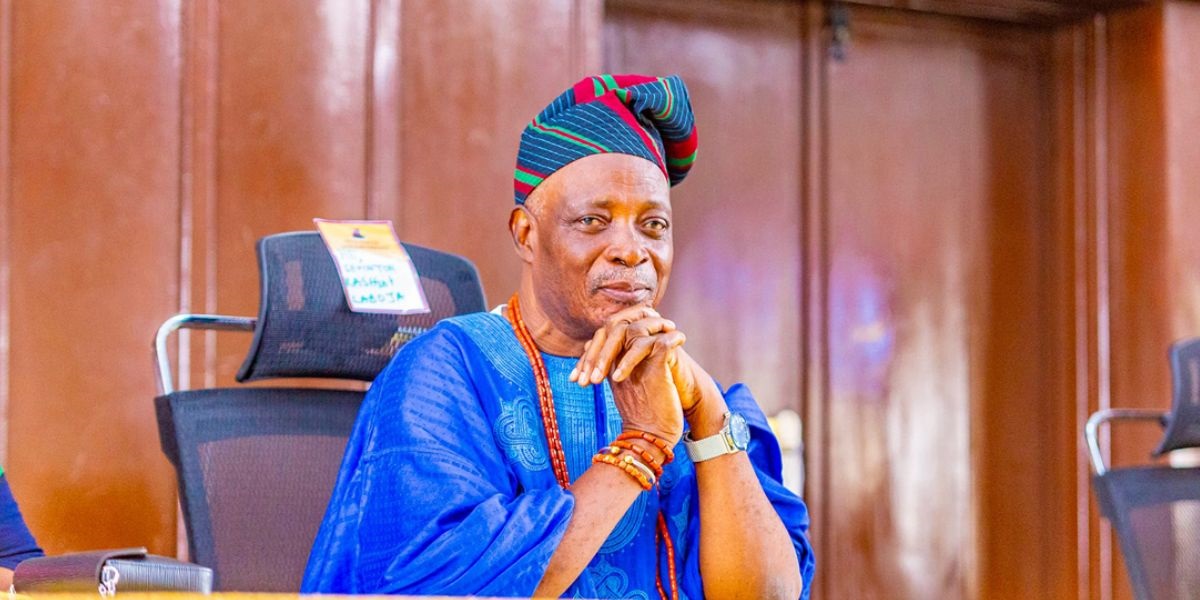
The European Union (EU) has reaffirmed its commitment to deepening its economic partnership with Nigeria, with the newly appointed Ambassador to Nigeria, Gautier Mignot, revealing that the EU is Nigeria’s largest trading and investment partner.
Speaking at a briefing in Lagos, Mignot noted that total trade in goods between the EU and Nigeria reached EUR 35 billion in 2023, with EU foreign direct investment in Nigeria standing at EUR 26.4 billion.
According to him, the investment underscores the EU’s firm commitment to supporting Nigeria’s economic growth.
He also hinted that the EU will work to boost job creation in Nigeria through the “Global Gateway” – a new investment strategy aimed at connecting people and accelerating green, digital and inclusive transition in partner countries.
According to him, the initiative entails leveraging and accelerating investment and working in coordination with EU companies to bring concrete benefits to Nigerians.
The flagship projects under the Global Gateway include Omi Eko (Lagos waterway transport), development of the renewable energy sector (solar, small hydropower), production of vaccines (MAV+), Erasmus+ and Horizon programmes.
He said through the Global Gateway investment agenda, there will be more focus on creating jobs and opportunities, especially for young people, and building on the country’s great sense of entrepreneurship in sectors like green economy, digital, agri-food and health.
The Ambassador said the EU recognises the importance of accelerating Nigeria’s industrialisation and maximising the opportunities for local added-value and job creation.
Mignot expressed his desire to launch initiatives that reduce trade and investment barriers, with a focus on creating jobs for Nigeria’s youth and cultivating a vibrant entrepreneurial ecosystem.
He said: “With the Global Gateway Investment Strategy, the EU works in sectors crucial for the transformation and diversification of the Nigerian economy such as energy, digital economy, agriculture and food security.
“The EU also invests in human development: health, education and social protection, as well as in good governance, migration issues and fundamental rights.
“The EU is increasingly developing projects in the North of the country as a whole to respond to the specific development needs of this part of Nigeria.
“The EU cooperation budget for 2021-2027 amounts to EUR 731 million in grants and is complemented by other instruments,” Mignot said.
He also announced plans for high-level visits and meetings to further strengthen EU-Nigeria relations.
“When it comes to investment, a key priority of President Tinubu’s Renewed Hope Agenda, Nigeria also has its strongest partner in the EU, as our foreign direct investment stock accounts for about 1/3 of Nigerian FDI, totalling EUR 26.4 billion (2022).
“There are hundreds of EU companies present in Nigeria.
Mignot, who arrived in Nigeria in September, said he aims to bring the EU-Nigeria partnership to a higher level with one goal: positively impact the Nigerian population.
“As I told the President, in uncertain times and a fast-evolving, you need constant and faithful partners on whom you know you can count: the EU is one for Nigeria.
“In turn, we see Nigeria as a key partner and a major player in Africa and the world.
“EU interests are to see Nigeria consolidate its role as an anchor of stability in Africa and progress on its path towards a peaceful, prosperous and sustainable future, resting on a robust democracy and allowing all citizens to enjoy their fundamental rights.
“We want to help in this endeavour, with full respect for Nigerian sovereignty and with humility because, especially in such a large country, we can not pretend that our cooperation is the main driver of change.”
Mignot said the European Investment Bank is active in Nigeria with several loans ranging from digital to agriculture, transport and youth and women employment priorities, with an active pipeline of up to EUR 1.3 billion of ongoing operations.






